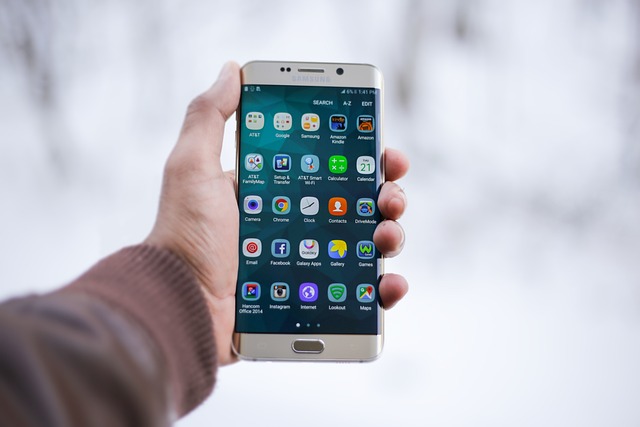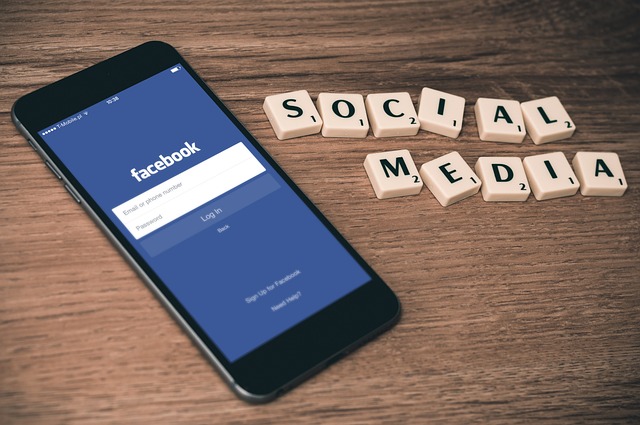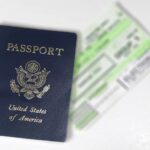
In modern society, mobile phones have become the center of our lives. Whether for work, social interaction, or entertainment, mobile phones are inseparable. For many people, mobile phones are no longer just a communication tool, but an indispensable part of daily life. With the popularity of smart phones and the increasing communication needs, many people have begun to think about whether it is necessary to have a backup second mobile phone line. This article will delve into this issue and help you decide whether you need a backup cell phone line.
1. Work requirements and emergencies
For workers who travel frequently and involve high-intensity communication or business processing, a backup mobile phone line is an indispensable tool. In many cases, the stability of communication directly determines the efficiency of work, especially in emergencies or unexpected situations. A backup mobile phone line can provide you with extra security, ensuring that even if there is a problem with your primary number, work can still continue smoothly.
Why a backup cell phone line is important:
- Dealing with main account failure: If your primary phone suddenly fails (such as a system crash, battery drain, or device damage), a backup phone line ensures you don’t lose communication with colleagues or clients.
- Network coverage issues: When traveling domestically or internationally, network coverage in different regions may vary greatly. The backup line can provide additional network support when the main signal is poor, ensuring that you have communication guarantees wherever you go.
- Ensure timely response: In an emergency, if you need to handle customer complaints or sudden business needs immediately, the backup line can help you avoid response delays due to main number problems, thereby reducing losses.
How to use backup lines at work:
- Answer emergency calls
- A backup mobile phone line can be set up as a backup number for work-related calls. If there is a problem with the primary number, the backup number will automatically take over the work phone to ensure that customers, colleagues or partners can contact you as soon as possible.
- Example: If the signal to your main number is suddenly interrupted while you are on a business trip, the backup line can help you continue to answer important client calls or meeting notifications.
- Handle urgent emails and notifications
- A backup cell phone line can be used not only to answer calls, but also to receive work-related text messages or emails. When the main number cannot receive information normally, the backup line can be used as a backup communication tool to ensure that you can receive any emergency notifications or important information.
- Example: If you are on a business trip and your main number suddenly runs out of battery and you need to receive important files or file transfer notifications, the backup number can help you receive and respond to emails in a timely manner.
- Data traffic support
- When on a business trip or traveling, backup lines can be used for traffic data support, especially in areas with unstable networks. With a backup line, you can use different carriers to maintain a high-speed, stable Internet connection to ensure you’re always online while at work.
- Example: If you are in an area with poor signal, the traffic of the main number cannot be used stably, and you need to view files in real time and participate in video conferences, the backup number can provide you with a better network connection.
- Ensure 24-hour communication
- In some key positions, it is very important to ensure that work communication systems can be accessed at any time. As an effective communication backup, the backup mobile phone line can ensure that you can still ensure uninterrupted work communication even if the main number is unavailable.
- Example: For customer service staff or sales staff who need to handle unexpected matters, backup lines can ensure that you will not miss any customer requests that require immediate response.
2. Personal privacy and security considerations
With the popularity of digital life, our mobile phone number is no longer just a communication tool, it also represents our identity, bank account, social media and various online activities. The protection of personal privacy has become the focus of more and more people’s attention, especially in today’s context of frequent network information leaks. In order to better protect personal privacy and avoid excessive intersection of life, work and social life, backup mobile phone lines have become an important privacy protection tool.
Why backup cell phone lines help with privacy:
- Separate personal life from work: A backup cell phone line can help you completely separate your work and personal life. For example, you can use your personal phone number to keep in touch with family and friends, and use your backup number exclusively for work calls, social platform notifications, or online shopping messages. This prevents private phone numbers from being misused for commercial purposes and reduces the risk of privacy leaks.
- Prevent harassment and spam: When you make your personal number public for various registration or social occasions, you are susceptible to harassing calls or spam messages from strangers. The backup line can serve as a “firewall” to isolate potential harassment and prevent personal numbers from being frequently exposed.
- Ensure social safety: A backup number can provide extra security in some unfamiliar social situations or when interacting with people you don’t trust very much. You can continue to communicate without worrying about leaking your personal information.
How to use backup lines in your daily life:
- Privacy protection in social situations
- When attending a party, social event, or meeting new people, you may not want to hand out your personal number, especially if you’re not sure of the person’s background. Alternate numbers can serve as a bridge to communicate with strangers, preventing personal numbers from being collected by unfamiliar people and reducing potential privacy risks.
- Example: You met someone new at a social event, and you don’t want to share your private phone number right away. A backup number can provide a secure communication channel in this situation. If the other party needs to contact you, they can use the backup number without directly disturbing your private life.
- Online shopping and account registration
- When shopping online and registering for a website, many platforms require a mobile phone number for identity verification. To avoid misuse or over-marketing of your personal number, you can choose an alternate mobile phone number to register. This way, even if there are unnecessary marketing calls or spam text messages, your main account will not be affected.
- Example: When you register an account on multiple e-commerce platforms, you can choose to use a backup mobile phone number as a verification number and reserve your personal number for important contacts and platforms. This can avoid receiving advertising and promotional information from the platforms.
- Social platforms and online events
- When joining social media or participating in some online activities, you may not want to make your personal number public to prevent privacy leaks or harassment. By binding the backup number to these platforms, you can effectively prevent the leakage of private information and maintain a certain degree of anonymity.
- Example: When participating in an online course or social group, you do not want your real mobile phone number to be disclosed. You can register with an alternate number to avoid exposing too much personal information in group chats or social platforms.
- Avoid leaking phone numbers
- A backup phone number can also be used as a protective measure to help you avoid leaking your primary number to unnecessary people or services. For example, when you need to fill out some forms or subscribe to a service, a backup number can provide a temporary communication channel without putting your private number on a list where it shouldn’t be.
- Example: You can use an alternate number instead of your personal number when filling out online surveys or subscribing to newsletters. This can prevent the main account from being interrupted by various irrelevant marketing activities or spam text messages.
3. Time-saving and effortless two-step verification
As more and more online platforms require users to enable two-factor authentication (2FA), mobile phone numbers have become an important means of protecting account security. Two-factor authentication not only enhances account security, but also effectively prevents malicious access to accounts after passwords are leaked. For security reasons, many people choose to register a backup mobile phone number as a second-step verification number, so that if the main number is lost, stolen or has problems, they can still guarantee access and control to the account.
Why a backup mobile phone line is important with 2-Step Verification:
- Backup protection when the primary number is lost or leaked: If your primary number is lost, stolen, or otherwise unavailable, a backup number provides you with instant access control, ensuring you can still recover your account or verify your identity through two-step verification. Using a backup phone number can prevent account lockout or inability to verify identity due to loss of the primary number.
- Coping with mobile phone replacement or operator change: When changing mobile phones or operators, the verification function of the original mobile phone number will often be affected. As another verification channel, the backup number can help you still ensure control of your account during the mobile phone replacement process, and can complete all verification steps without the main number.
- Prevent accounts from being tampered with or locked out: When your account needs to perform sensitive operations (such as password changes, withdrawals, etc.), two-factor authentication can effectively prevent unauthorized operations. The backup mobile phone number provides an additional verification method to ensure that the account remains safe even if the main number is compromised.
How to use a backup phone number for two-step verification:
- Register a backup mobile number as an additional verification number
- Register a backup mobile number as a method of two-factor authentication on your major online platforms (e.g. bank account, email, social media, etc.). In this way, when logging in to the account, the platform not only requires entering a password, but also sends a verification code through the backup mobile phone number to confirm the identity and enhance the security of the account.
- Example: When you set up your Google account, add the backup number as a “recovery number”. In this way, when you change your mobile phone or lose your password, Google will send you a verification code through the backup number to help you quickly restore account access.
- Provide verification support when the primary account is unavailable
- If your primary number is lost or unavailable, you can rely on your backup phone number as a verification method to recover your account or modify settings. This can avoid being unable to complete necessary authentication operations due to the loss of the primary number, ensuring account security and access control to account content.
- Example: If your main number is stolen or cannot receive the verification code, you can use your backup mobile phone number to receive the verification information to ensure that you can still complete all account management operations.
- Backup phone number as password recovery tool
- If you forget your password or cannot recover your account through other means, the backup phone number can also be used as a password reset or account recovery tool. Many platforms provide password retrieval options and send verification codes or recovery links through backup mobile phone numbers, allowing you to successfully retrieve your account.
- Example: On platforms such as Facebook or Twitter, if you forget your password or cannot use your main number to receive the verification code, the backup number can help you retrieve your account via text message.
- Use a backup number when changing numbers or mobile phones
- When you change mobile phones or operators, the backup mobile phone number can be used as a temporary verification method to avoid account access problems caused by number changes. You can rely on your backup phone number to complete two-step verification during the switch to ensure that your account remains secure.
- Example: After changing your mobile phone number, your social media account may be locked due to the change of verification number. At this time, the backup number can be used to receive verification information, complete the binding of the new mobile phone number and account recovery, and ensure the smooth progress of the verification process.
4. Seamless switching and network coverage
In modern life, mobile phones have become an essential tool for our daily life and work, but mobile phone network signals are not guaranteed to be stable everywhere, especially in less crowded or remote areas. In order to avoid affecting communication due to unstable signal or inability to connect to the network, backup mobile phone lines have become particularly important. It can ensure wider network coverage in different geographical locations and different network environments. Especially when traveling cross-border, it can effectively solve communication interruptions caused by operator coverage issues.
Why backup mobile lines ensure seamless handover and network coverage:
- Addressing the Challenges of Areas with Poor Signal: In some places, due to geographical environment, building obstruction and other reasons, the signal coverage of the main operator may be unstable, especially in areas such as mountainous areas, basements or suburbs. Backup mobile phone lines can help you choose different operators and switch between different networks to ensure that there is a network signal everywhere.
- Convenience when traveling internationally: When you travel to different countries, your phone may need to frequently switch SIM cards or adjust network settings due to different network coverage of operators in each country. A backup mobile phone number or a mobile phone with multiple card slots allows you to have multiple SIM cards at the same time. By flexibly switching operators, you can ensure network signal coverage and avoid communication interruptions caused by the lack of a suitable network.
- Avoid high roaming charges: When traveling abroad, using a domestic operator’s mobile phone number often incurs higher roaming charges. As a backup mobile phone line, you can choose a SIM card from a local operator, which can not only reduce roaming charges, but also obtain a more stable network signal.
How to use backup lines to achieve seamless handover and network coverage:
- Buy local SIM card
When you are on a business trip or traveling to a different country, purchasing a SIM card from a local operator is a simple and effective solution. Backup mobile phone lines can be used with local SIM cards, allowing you to avoid expensive international roaming charges while ensuring network coverage in different areas. If you don’t want to buy different SIM cards for each country, you can choose some operators or virtual operators that provide cross-border data traffic and can support networks in multiple countries at the same time.- Example: When traveling to Europe, you can purchase a local European SIM card, or choose a SIM card that supports multiple European countries (such as a SIM card within the EU) to easily switch networks in different countries to ensure smooth communication.
- Use a phone that supports dual SIM cards
Most modern smartphones support dual SIM card functionality, which means you can insert two SIM cards into the same phone, one as the primary number and the other as a backup number. Through this function, you can switch networks at any time both at home and abroad, without worrying about calls and data traffic being affected by network coverage issues.- Example: If you have a mobile phone that supports dual SIM cards, you can insert the local SIM card when you go abroad and keep your main number as a backup line. This way you not only enjoy cheaper local network charges, but you can also use your main number to receive emergency calls or make important communications at any time.
- Smart devices supported by multiple networks
Modern smart devices not only support dual SIM cards, but also enable more flexible network switching through eSIM technology. eSIM is an embedded SIM card that can switch networks of different operators without replacing the physical card. It allows you to switch between different networks without inserting a physical SIM card, greatly improving the convenience and flexibility of communication, especially suitable for people who frequently travel on business or cross-border travel.- Example: You can use the networks of multiple operators on one device through the eSIM function. When you reach an area with poor network coverage, you can choose to switch to another operator’s network to ensure uninterrupted signal.
- Solve unexpected network problems
In some emergency situations, such as mobile phone failure, SIM card damage or loss, the backup mobile phone line can be used as an emergency communication tool. You can switch to a backup number at any time to ensure you can still answer important calls or stay in touch if your primary number becomes unavailable.- Example: If you are on a business trip and suddenly find that your main mobile phone has no signal or cannot receive calls, the backup mobile phone line can take over immediately to ensure that you do not lose important business communications.
5. Reduce cost pressure on operators
In the modern communication environment, mobile phone charges are often a large item of people’s daily expenses, especially when you need to roam domestically or internationally, the charges often become very high. To reduce this high expense, having a backup cell phone line is a smart cost-control strategy. By properly planning the use of two lines, you can effectively reduce communication costs, especially when data traffic is used less or frequent contact is not required, maximizing cost savings.
Why backup cell phone lines help lower bills:
- Lower international roaming charges: If you frequently travel for business or travel abroad, international roaming charges can often be very expensive. By using a backup line for international roaming and keeping your primary number for domestic use, you can avoid high roaming charges. The main number can continue to be used for domestic communications, while the backup number can only be used overseas. This can maintain communication continuity and avoid double roaming charges.
- Reasonably control data traffic costs: In some cases, the data traffic of the main account has been used up or you need to save traffic. The backup line can help you switch to a low-cost network when needed to ensure low-traffic communication needs. For example, you can use your backup number for basic communications such as making and receiving calls and text messages, while your primary number is used for data traffic and high traffic needs.
- Avoid high package fees: Some operators’ plans may include many unnecessary services or excessive data traffic, resulting in higher monthly bills. You can choose to use your primary number for primary communications and keep your plan fees low, while your backup number allows you to choose a more cost-effective plan designed for low-traffic, low-cost usage.
How to use backup lines to reduce cost pressure:
- Set the main account as a daily communication tool
Use the primary number for daily communication, including basic communication needs such as making and receiving calls and sending text messages, while the backup number is used for low-traffic network use or only as an emergency backup number. In this way, the primary account can choose a plan that includes more data traffic, while the backup account can choose a simpler and cheaper plan or a prepaid card, which is only used when data demand is low.- Example: Your primary account comes with a monthly data plan, suitable for video calls and daily browsing, while your backup account only includes voice calling and text messaging capabilities and doesn’t require a lot of data. In this way, you can maximize your control over data traffic and communication costs when traveling domestically and abroad.
- Proper use of domestic and international network coverage
When roaming domestically, the main number may enter a high-cost roaming area. In this case, the backup line can be used as the main communication tool to avoid unnecessary roaming charges. If you plan to travel abroad, activate your backup line as an international roaming line to avoid activating expensive international roaming packages with your main number abroad.- Example: You are on a business trip to remote domestic areas, and the roaming charges for your main number are very high. You can save money by temporarily activating your backup line, using your backup number to stay in touch, and turning off data on your primary number or avoiding roaming.
- Control your budget with prepaid plans
Backup cell phone lines are especially useful with prepaid plans. This type of package usually has no monthly fees and is only billed based on the traffic, calls and text messages used. It is very suitable for low-frequency communication situations. You can recharge the corresponding amount according to actual needs to avoid fixed fees and unnecessary package expenses.- Example: Use a backup number as a backup when you’re traveling at home and abroad, and choose a low-priced prepaid plan that only includes a small amount of calls and text messages, so you only need to top up as needed without incurring too many fixed charges.
- Switch data plans to reduce high bills
If the data traffic of the primary number is exhausted or you no longer need a high-traffic Internet connection, you can turn off the data function of the primary number and switch to the backup number to continue using the Internet. This method can prevent the main account from incurring additional charges due to excess traffic.- Example: If you are connected to Wi-Fi at home or in the office and the data package of your main number is about to be used up, you can switch to the backup number to receive notifications of low data traffic or check important text messages, thereby avoiding the problem of overage of the main number. Additional charges apply.
6. Backup and data storage
In modern life, mobile phones are not only communication tools, but also carriers for storing important personal data, including contacts, text messages, photos, files, etc. Therefore, a backup mobile phone line not only provides you with communication security, it also serves as an effective data backup and storage solution. By storing important information and files on a backup phone or number, you can reduce the risk of data loss if your primary number is lost or damaged, ensuring that your important data is always protected.
Advantages of backup mobile phone lines as data backup:
- Data security: When the phone is lost or damaged, the data in the main account may not be recovered, especially if it is not synchronized or backed up in time. Storing important contacts, text messages and files on a backup mobile phone line or SIM card can provide you with a second layer of protection. In this way, even if the main number becomes unavailable, the data in the backup phone or card will still be intact.
- Avoid data loss: Many users are accustomed to storing contacts and important information in their primary phone number, but once the phone malfunctions, it is very difficult to restore the data. By synchronizing some key data to a backup phone or SIM card, you can ensure that this information has multiple storage locations and will not be lost even if there is a problem with the primary device.
- Improve recovery efficiency: If the main number is lost, damaged or replaced, the backup mobile phone line can be used as a quick way to restore data. You only need to import the backup data from the backup mobile phone or SIM card to the new device to quickly restore important data in work and life, avoiding unnecessary trouble caused by data loss.
How to use backup lines for data backup and storage:
- Store important contacts to a device with an alternate number
You can import important contacts from your primary number to your backup phone or SIM card to ensure that if your primary number becomes unavailable, you can still easily contact key people through your backup line. Many mobile phone operating systems allow contacts to be stored on the SIM card and can even be synchronized with cloud backup to ensure multiple backups.- Example: You can back up the numbers of important contacts such as company colleagues, relatives and friends in the backup mobile phone to the SIM card. In this way, even if the phone is lost or replaced with a new device, the contacts in the backup number can still be seamlessly transferred to the new device to avoid losing contact information.
- Use a backup line to store important text messages and files
If you have important text message records or files, consider saving them via cloud storage or directly on your backup phone. For example, many mobile phone applications support backing up text messages and files to the cloud or external storage devices. The phone with a backup line can be used as a storage and backup container to ensure that file data will not be lost.- Example: You can back up text messages containing bank transaction information, contract content or private memos to a backup mobile phone, or use cloud storage services to back up important document files. In this way, even if the main number’s mobile phone is lost, the backup files and text messages on the backup line can still help you recover important information.
- Protect data with multi-device synchronization
In many smartphone operating systems, contacts, text messages, and files can be synchronized across multiple devices. You can choose to set up your backup phone as a second sync device so that if something goes wrong with your primary device, you can quickly restore communications and store content through the backup device.- Example: If you have multiple mobile phones (such as a primary phone and a backup phone), you can synchronize your address book, text messages, and important files to the backup phone through Wi-Fi or Bluetooth. This way, you don’t have to worry about important information being unrecoverable because your phone is damaged or lost.
- Use SIM card to store important data
In addition to keeping data on your phone, you can also store key contacts and information on a backup SIM card. Most SIM cards provide a certain amount of storage space. Although the capacity is limited, it is very effective for storing important data such as emergency contacts and text messages.- Example: You can save key phone numbers, emergency contacts and a few text messages on a spare SIM card. If your primary phone is lost or malfunctions, you can easily insert the backup SIM card into the new device to restore communications and data.
- Back up using external storage devices
Backup mobile phones are not limited to SIM cards or memory storage, but can also be used for data backup through external storage devices (such as U disks, SD cards, etc.). By transferring important files or information to these external storage media, data security can be better ensured.- Example: You can transfer company files, photos and other important data to the SD card in a spare phone, or use a cloud storage service for regular backup. In this way, data can still be restored from the backup even if the phone is lost or damaged.
in conclusion
In modern society, mobile phones have become an indispensable tool in our lives. With the increase in work demands, personal privacy protection and security issues, the need for backup mobile phone lines has become increasingly prominent. For workers who travel frequently, deal with urgent matters, or need to ensure uninterrupted communication, a backup mobile phone line can not only ensure the stability of communication, but also avoid work interruptions caused by equipment failure or network problems. In personal life, backup lines can effectively protect privacy, avoid leaking personal numbers, and reduce the interference of spam messages. In addition, backup mobile phone lines also play an important role in ensuring account security and performing two-factor authentication, especially providing additional security when the primary number is lost or changed. By flexibly switching networks and operators, the backup line also ensures seamless switching and network coverage, especially when traveling cross-border, avoiding the trouble caused by high roaming charges or unstable signals.
Therefore, whether you need a backup second mobile phone line depends on your individual work needs, privacy protection, and security requirements. If you frequently need to handle important work matters, travel for business, or use your phone in different areas, a backup cell phone line is undoubtedly a solution worth investing in.





